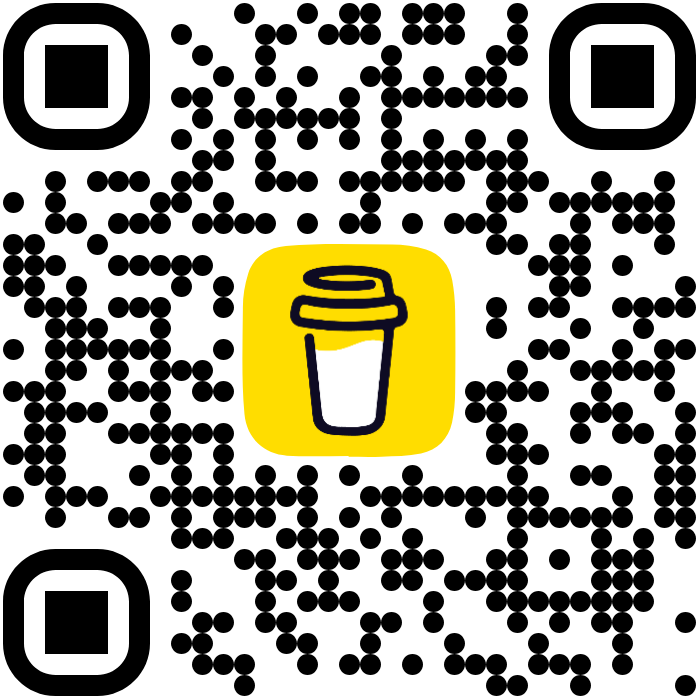Layoffs Are Causing More People to Pivot to Business, Startups, or Freelancing — Here’s A Brief Of The LandscapeNavigating the landscape of job uncertainty caused by AI layoffs
The job market is changing fast and not necessarily for the better. In 2025, the impact of AI is no longer theoretical. It’s tangible, immediate, and hitting paychecks across industries. While AI is accelerating innovation, it’s also leading to widespread layoffs, especially in large corporations that are prioritizing automation and efficiency over human labour. AI Is Reshaping the Workforce & It’s Just BeginningIn early 2025, Microsoft announced the layoff of over 5,000 employees, even as it reported a record $61 billion in quarterly revenue, a large portion of which was driven by AI and cloud services. Amazon followed with 27,000 job cuts, particularly targeting warehouse operations, HR, and customer service that are all now increasingly handled by automation. Meta reduced its staff by nearly 3,600 in a move framed as an “AI-first transformation.” These are just a few among dozens of examples. This is not a blip. The World Economic Forum forecasts that by 2030, 41% of businesses globally will reduce their workforce due to AI. Automation is not just a future problem it’s a present-day career disruptor. A Job Market That’s Getting Tougher to NavigateOn the surface, labour markets in countries like the U.S. appear resilient. Initial jobless claims remain low, with 227,000 filed in mid-May 2025. But beneath the surface, the waters seem choppier. The median duration of unemployment has increased from 9.8 to 10.4 weeks, suggesting that once workers lose their jobs, they’re struggling to re-enter the workforce, especially in roles being phased out or absorbed by AI, further indicating that displaced professionals are taking longer to find new roles often because those roles simply don’t exist anymore. In India, the unemployment rate stood at 5.1% in April 2025, with urban youth, especially women, facing the highest unemployment amid rising automation in service sectors. In the UK, unemployment has climbed to 4.5%, with over 33,000 jobs lost and vacancies down by 42,000, reflecting a cooling labour market partly due to increased adoption of AI across industries. Both economies are beginning to feel the structural impact of technology-driven layoffs, aligning with global trends. As more mid-level white-collar jobs get automated or merged, traditional career progression is being rerouted. The ladder is no longer vertical rather it’s branching sideways into entrepreneurship in business, startups, and freelance careers. Your Job Is Not SafeOne of the starkest realities of the AI revolution is that tenure, experience, and seniority are no longer shields against being axed from your job. In the latest wave of layoffs, even long-serving, high-performing employees are being let go; not for underperformance, but because their roles are now considered redundant in an AI-driven workflow & landscape. At IBM, entire departments in areas like HR and administration saw deep cuts as AI tools were deployed to streamline internal processes. At Google, seasoned project managers and marketing veterans with over a decade of experience were dismissed in favour of leaner teams supported by generative AI tools. Even at consultancies like Accenture and PwC, experienced analysts and consultants have faced cuts as clients adopt AI for tasks like data synthesis, financial modelling, and even client interfacing. The message is pretty clear: no matter your level within an organisation, your job isn't safe if it can be done faster, cheaper, or at scale by AI. Starting a Business vs. Building a Startup — Know the DifferenceIn a time of professional uncertainty, many are taking control often by circumstance by launching their own ventures. But it’s critical to understand the difference between starting a business and founding a startup — they require vastly different mindsets and approaches. A business typically solves a known problem in a stable market. It might be a design studio, a consulting firm, or an online or local retail brand. The goal is clear: consistent revenue, strong client relationships, and profitability. Businesses are more about execution than invention. A startup, by contrast, begins with uncertainty. It’s about solving a problem in a way that hasn’t been done before or creating a market that doesn’t yet exist. Startups are designed to scale, attract venture funding, and potentially disrupt entire industries. The goal is growth and market dominance, not immediate profitability. Both paths can be viable depending on your goals. If you’re looking for stable income and a straightforward service model, starting a business might be your best bet. If you’re driven by innovation and comfortable with risk, a startup could offer the chance to build something truly transformative. But neither path is easy. Both demand resilience, adaptability, and relentless problem-solving & perseverance. If you’re risk-averse and looking for steady cash flow, a business might be the better fit. If you’re willing to experiment, pivot, and possibly fail before succeeding, the startup route may be more rewarding. In the United States, small business & startup applications have surged in 2024, averaging 430,000 per month — a 50% increase from 2019. In the U.S., the share of solo founders has more than doubled over the past decade, accounting for 35% of the 2024 class. This shift is facilitated by AI technologies that streamline the company-building process and a growing number of early-stage venture capital funds Freelancing: Your Fastest Route to Flexibility & IndependenceFor many professionals impacted by layoffs, freelancing is the most accessible and immediate path to reinvention. It offers flexibility, control, and a direct link between your skills and your income. As of 2025, approximately 1.57 billion people worldwide are engaged in freelancing, accounting for 46.7% of the global workforce. This trend is fueled by the desire for flexibility and autonomy, with 70% of freelancers preferring gig work over traditional employment. In India, the gig workforce is projected to grow from 7.7 million in 2020–21 to 23.5 million by 2029–30, highlighting a significant shift towards freelance and contractual opportunities. Additionally, as I’ve covered in an old post on the decline of the 9–5 & emergence of the gig economy and flexible work arrangements, this is encouraging professionals to diversify their skill sets. To build a successful freelance career, you need to choose an in-demand skill set. Right now, there’s heavy demand for AI integration specialists, full-stack developers, digital marketers, UX/UI designers, content strategists, and roles in the creative arts. If you’re coming from a corporate background, consider repurposing your existing skills into project-based offerings. You can start by building a credible portfolio that includes real or mock projects that showcase what you can do. Create a professional profile on platforms like Upwork, Fiverr, or Toptal. More importantly, use LinkedIn not just to “be present,” but to actively engage with your industry: post regularly, share work samples, and connect with potential clients. You’ll also need to wear multiple hats. As a freelancer, you’re your own sales team, operations manager, finance department, and HR. Time management, pricing your services effectively, and setting boundaries become as important as the work itself. The Future Is Uncertain — But It’s Also OpenYes, AI is leading to job losses. But it’s also democratizing access to opportunity. The old promise of lifelong employment is fading, but replacing it in its place is the freedom to choose how you work, what you create, and who you become. Whether you decide to build a business, launch a startup, or start freelancing, the time to pivot is now; even if you have a stable job you could explore these avenues as a side project or side hustle. The key lies in adaptation, not just to technology, but to the mindset of self-direction. In a world where machines can do more, your edge is to do what only humans can. Be creative. Be empathetic. Be entrepreneurial. The future of work is already here. This post was originally published on my LinkedIN newsletter WithYourSound You Kill The Inc. (You can subscribe to it on LinkedIN). If you liked this post & follow my newsletter, and find value in my insights, please stay tuned for the release of my book “Make Your Own Waves” which is scheduled to be released in the coming weeks. Thank you for being a valuable subscriber to my newsletter Light Years! If you liked this post & found it informative, feel free to share this publication with your network by clicking the button below… I hope you found this post informative & it helped you in some way. As always, feel free to subscribe to my publication Light Years & support it & also share it if you’d like. Get it in your inbox by filling up the space below! Alternatively, you can also subscribe to my Medium profile linked below as well
If you’d like to thank me for this post, if you found value in it, you can buy me a coffee instead of, or alongside subscribing to my publication(s), by scanning the QR code below so that I can sip my next brew of coffee, all thanks to you! :) Thanks for reading! You're currently a free subscriber to Light Years by Gaurav Krishnan. For the full experience, upgrade your subscription. |
Saturday, 24 May 2025
Layoffs Are Causing More People to Pivot to Business, Startups, or Freelancing — Here’s A Brief Of The Landscape
Subscribe to:
Post Comments (Atom)
Salt and Light in a Loud, Confused World Fresh Manna by Pastor Tim Burt
Fresh Manna with Pastor Tim Burt A Note from Pastor Tim Greetings and thank you for rea...

-
https://youtube.com/watch?v=IlPponrElbc&si=5ds0UtFazsvr-lFf ...




No comments:
Post a Comment